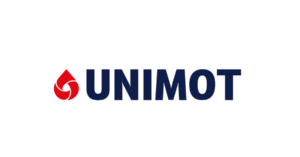
Polish Unimot S.A. plans to build a fuel and energy complex in Mostyska, Lviv region, with an estimated investment of EUR 55-60 million, according to Nazariy Volyansky, director of government relations in Ukraine at Unimot S.A.
“We have already purchased land in western Ukraine, in Mostyska. This will be a large fuel and energy complex project, a fuel terminal worth around EUR 55-60 million,“ he said during a roundtable discussion entitled ”Freedom for business and new investment opportunities: how the government, regions, and business are launching recovery” at Interfax-Ukraine on Monday.
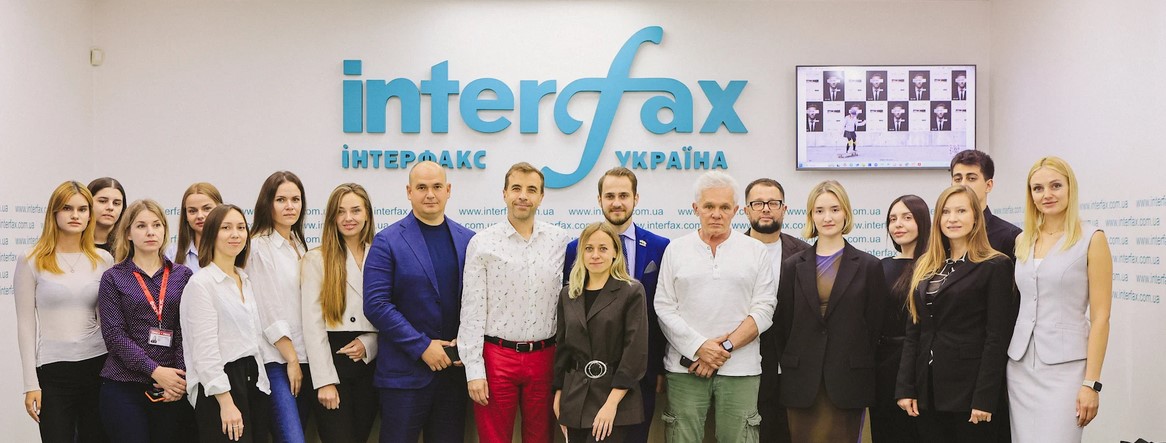
He added that the company has already submitted an application to the Ministry of Economy to be recognized as a significant investor and is counting on receiving certain incentives from the state.
“We hope that we will receive them and start this project. It is currently in the active preparation stage,” he said.
Volyansky clarified that the land plot in question “includes a railway.”
As reported, the European Union has decided to provide Ukraine with EUR 76 million in grant aid for the construction of a European gauge railway between Lviv and the border with Poland. Sknyliv-Mostyska II will be the first full-fledged section of the future direct railway connection with Europe.
Founded in 2011, UNIMOT S.A. is an independent importer of liquid and gaseous fuels, offering diesel fuel, biofuel, liquefied gas, natural gas, electricity, motor oils, and bitumen. Since 2017, it has been listed on the main market of the Warsaw Stock Exchange. Since 2017, UNIMOT S.A. has been building a network of petrol stations in Poland, and since 2019 in Ukraine under the AVIA brand based on master franchise agreements.
Source: https://interfax.com.ua/news/investments/1091303.html

Three substances have been recognized as the most scientifically effective for improving brain function under mental stress:
Scientific commentary
It is important to understand that the key to maintaining brain activity is a balanced diet, regular physical activity, adequate sleep, stress management, and social activity. Experts emphasize that choline and omega-3 can provide significant benefits when taken regularly. Ginkgo biloba is recommended only after careful selection and medical supervision. General health factors (diet, exercise, stress reduction) remain the most consistent means of supporting cognitive function.
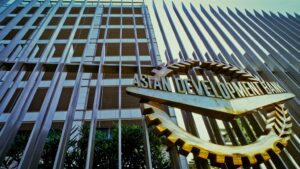
The Asian Development Bank (ADB) has lowered its economic growth forecast for developing countries in the Asia-Pacific region in 2025 to 4.7% from the 4.9% expected in April.
The GDP growth estimate for next year has been lowered to 4.6% from 4.7%.
“The downward revision reflects expectations of weaker exports amid higher US import tariffs and global trade uncertainty, as well as weaker domestic demand,” the ADB said in a report.
The outlook for the Asia-Pacific region could be further undermined by escalating US tariffs and trade tensions, experts say. Other risks include conflicts and geopolitical tensions that could disrupt global supply chains and lead to higher energy prices, as well as a more serious than expected deterioration in China’s real estate market.
“The economic outlook has deteriorated amid rising risks and global uncertainty,” said Albert Park, chief economist at the ADB. “Economies in the region should continue to strengthen their fundamentals and promote open trade and regional integration to support investment, employment, and growth.”
Inflation in developing Asia-Pacific countries is projected to continue slowing amid lower oil prices and high agricultural production, which will ease pressure on food prices. The ADB forecasts inflation at 2% this year and 2.1% in 2026, compared with April estimates of 2.3% and 2.2%, respectively.
The bank’s analysts still expect China’s GDP to grow by 4.7% in 2025 and 4.3% next year. Inflation this year is expected to be 0.2% (in April it was predicted to be 0.4%), and in 2026 – 0.4% (0.7%).
South Korea’s economy will grow by 0.8% this year, while previously a 1.5% increase was expected. The growth estimate for 2026 has been lowered to 1.6% from 1.9%.
India’s GDP is forecast to grow by 6.5% this year and 6.7% next year. The previous forecast predicted growth of 6.7% and 6.8%, respectively.
The ADB still expects Indonesia’s economy to grow by 5% in 2025 and 5.1% in 2026.
The ADB was established in 1966. Its shareholders are 69 countries, 49 of which are located in the Asian region.
The bank considers 46 of these countries to be developing Asian countries.
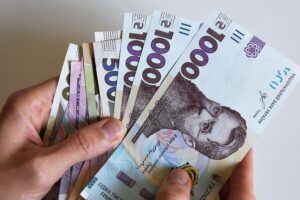
State-owned Oschadbank, Ukrgasbank, and Ukreximbank (all based in Kyiv) provided Ukrainian cities with 10 loans totaling UAH 3.0 billion in the second quarter of 2025, according to information from the Ministry of Finance.
According to the information, Ukrgasbank issued the largest number of loans – seven loans totaling UAH 1.93 billion.
Lviv received the largest loan from the bank in the amount of UAH 650.5 million.
The interest rate for the first year is 16.15% per annum, and from the second year onwards, the rate is variable based on the indicative UIRD 12M rate + 3.02% margin (calculation: 16.15% – 13.13% UIRD 12M on the date of the agreement). The interest rate is reviewed annually but cannot exceed 22%. The loan term is 60 months, with a grace period of 24 months.
Dnipro received two loans from the aforementioned bank for a total amount of UAH 543.1 million.
The first loan is for UAH 333.1 million with an interest rate of 15.5% in the first year, followed by a variable UIRD 12M + 3% with annual review, but not exceeding 23%. The loan term is 36 months, with a grace period of 12 months.
The second loan is for UAH 210.0 million, with an interest rate of 16.15% in the first year from the second year – variable UIRD 12M + 3.03% (calculation: 16.15% – 13.12% UIRD 12M on the date of the agreement), maximum – 23%, term – 36 months, grace period – 12 months.
Kryvyi Rih has attracted two loans from Ukrgasbank for a total amount of UAH 394.3 million.
The first loan is for UAH 217.6 million, and the second is for UAH 176.7 million.
Both loans have a fixed rate of 15.5% in the first year, followed by a variable rate of UIRD 12M + 3% with annual review, but not exceeding 23%. The loan term is 84 months, with a grace period of 18 months.
Zaporizhia also received a loan of UAH 300.0 million. In the first year, the rate is 15.5%, and from the second year, a variable rate based on UIRD 12M + 3% with a limit of no more than 23%. The term is 84 months, with a grace period of 18 months.
In addition, the village of Kolchino in Zakarpattia received a loan of UAH 50.0 million. In the first year, the rate is 16.15%, then a variable rate of UIRD 12M + 3.03% (based on 16.15% – 13.12% UIRD 12M on the date of the agreement), with a limit of 23%. The loan is provided for a term of 36 months.
Oschadbank issued two loans totaling UAH 968.0 million. The first loan was received by Lviv – UAH 668.0 million, with an interest rate of 16.15% in the first year from the second year, variable UIRD 12M + 3.02% margin (16.15% – 13.13% (UIRD 12M on the day preceding the date of the agreement) with annual review, but not more than 22% for 60 months, grace period – 24 months.
The second loan was received by Dnipro – UAH 300.0 million first year – 16.1% per annum, from the second year – variable UIRD 12M +2.98% margin (16.1% – 13.12% (UIRD 12M on the day preceding the date of the agreement), but not exceeding 22% for 60 months, with a grace period of 12 months.
In turn, Oschadbank provided two loans to Lviv and Dnipro for a total amount of UAH 968.0 million.
Lviv received a loan of UAH 668.0 million. The interest rate for the first year is 16.15% per annum. Starting from the second year, a variable rate will apply: indicative UIRD 12M + margin 3.02% (calculated based on the UIRD 12M level of 13.13% on the day preceding the conclusion of the agreement). The rate is reviewed annually but will not exceed 22%. The term is 60 months, with a grace period of 24 months.
Dnipro received a loan of UAH 300.0 million. In the first year, the rate is 16.1% per annum. From the second year, the rate will be variable UIRD 12M + margin of 2.98% (with a base UIRD 12M of 13.12% at the time of signing the agreement). The maximum rate is capped at 22%. The loan term is 60 months, with a grace period of 12 months.
Ukreximbank provided a loan of EUR 1.8 million (approximately UAH 87.7 million) to Sokil in the Lviv region. The rate is variable: based on the indicative EURIBOR 6M rate plus a margin of 4.24% (at the date of the agreement, this amounted to 6.3% – 2.06% EURIBOR 6M). The maximum rate is capped at 8% per annum. The loan term is 60 months, with a grace period of 12 months.
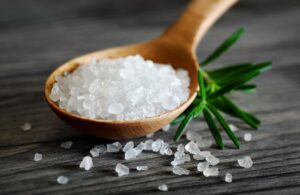
In January-June 2024, Ukraine imported 211,692 thousand tons of salt, which is 45.88% less than in the same period a year earlier, when external purchases amounted to 391,186 thousand tons.
According to statistics released by the State Customs Service (SRS), spending on salt purchases on foreign markets in the first half of 2025 decreased by 48.46% to $26.919 million, compared to $52.225 million in the same period of 2024.
The main suppliers of salt to Ukraine in January-June were Egypt, which accounted for 46.09% of supplies, worth $12.407 million, Turkey (17.57% and $4.730 million) and Romania (13.41% and $3.611 million)..
A year earlier, the top three salt suppliers were the same: Egypt (54.89% or $28.668 million), Turkey (17.15% or $8.956 million) and Romania (14.69% or $7.671 million).
As reported, Ukraine exported 710,040 tons of salt worth $28.32 million in pre-war 2021, while in 2022, exports fell fivefold in real terms to 142,038 tons, and revenues fell even more sharply to $3.82 million. The main buyers of Ukrainian salt in 2021 were Poland (39.1%), Hungary (27.4%), and Romania (7.3%). In 2021, Ukraine imported 142,810 tons of salt worth $12.92 million.
After the occupation by Russian troops in April 2022 of the country’s largest salt producer, Artemsol, Ukraine virtually stopped its exports and became a net importer.
The Tereblya salt deposit (Zakarpattia region) resumed salt production in August 2023. The head of the Zakarpattia Regional State Administration, Viktor Mykyta, said that Zakarpattia would be able to provide Ukraine with 100% of its technical and table salt.
The Dolinsky deposit (Ivano-Frankivsk region) plans to resume salt production in the near future. Work is currently underway on the Dolinsky deposit development project, and a thorough environmental impact assessment is being conducted. Specialists from the State Scientific Research and Design Institute of Basic Chemistry “Niochim” are preparing a design solution for a future salt production plant. A special permit for the extraction of rock salt (halite) in 2023 was obtained by the Kharkiv-based company “Planeta Komfort.”

In January-June 2024, Ukraine imported 22,617 thousand tons of coffee, which is 6.1% less than in the same period a year earlier, when foreign purchases amounted to 24,094 thousand tons.
According to statistics released by the State Customs Service (SCS), spending on coffee purchases in the first half of the year rose by 36.9% to $173.403 million, compared to $126.684 million in the same period a year earlier.
The main suppliers of coffee to Ukraine were Poland, which accounted for 16.58% of imports, worth $28.749 million, Brazil – 12.75% and $22.104 million, and Germany – 12.49% and $21.653 million.
A year earlier, the top three coffee suppliers to Ukraine were Poland (16.83% worth $21.326 million), Italy (15.87% worth $20.1 million), and Brazil (12.31% worth $15.598 million).
Tea imports in January-June 2025 decreased by 22.87% to 5,452 thousand tons compared to 7,069 thousand tons in the same period last year. In monetary terms, imports in the first half of 2025 decreased by 16.26% and amounted to $20.957 million compared to $25.027 million last year.
At the same time, the three key suppliers of tea to Ukraine in January-June remained unchanged: Sri Lanka (30.13% worth $6.313 million), Kenya (17.77% worth $3.724 million) and China (14.63% worth $3.067 million). Last year, these countries accounted for 28.95%, 23.07%, and 11.33% of tea exports to Ukraine, bringing them $7.247 million, $5.774 million, and $2.835 million, respectively.